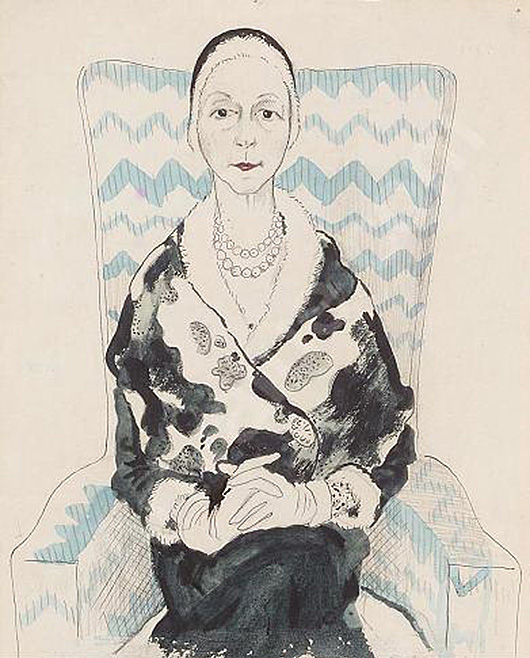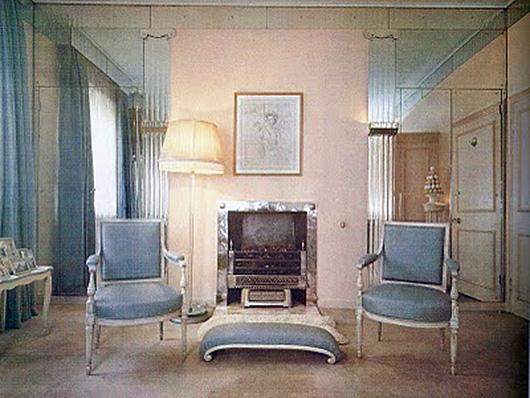Women from History: Swank Elsie de Wolfe
The young artist, Cecil Beaton, met and sketched interior decorator Elsie de Wolfe in New York in 1929. He was much younger than her but he liked her at once calling de Wolfe "the sort of wildly grotesque artificial creature I adore". 
Elsie de Wolfe had middling success as a stage actor.
Her real success came after she changed direction and became an important American tastemaker. A lady decorator.
One of her most famous interiors was for the first female only club in New York, the Colony Club.
This is the Trellis Room.
And the Strangers' Room
In 1915 she published The House in Good Taste. A natty book on all things refined in the home. But also a treatise on the idea of women's spaces. A space made by women after the men have played their architectural part.
"It is the personality of the mistress that the home expresses. Men are forever guests in our homes, no matter how much happiness they may find there."
De Wolf also had some particular ideas on colour.
"If you are inclined to a hasty temper, for instance, you should not live in a room in which the prevailing note is red. On the other hand, a timid, delicate nature could often gain courage and poise by living in surroundings of rich red tones."
In 1938 Janet Flanner wrote a story about de Wolf in The New Yorker.
"She was a wizard saleswoman. She made money because she likes money and is vulnerable to it, because she has a true, talented eye for color, because she loved the job, and above all because the time was ripe for the work. Women clients liked her because she planned plenty of closets and was practically the mother of modern lampshades; also, she had an inventive efficiency unafraid to mix the practical and lovely.
"She is today a lively little figure with artfully coiffed pale green hair, squirrel-brown eyes, an alert, inquiring, small chic face, and neat tiny feet in low-heeled shoes. She has an air of being an eccentric, entertaining, highly compact, energetic personality. She has been called one of the world's best-dressed women and probably is, since she sensibly gets beautiful Parisian clothes which are simple, fit perfectly, aren't ephemeral or startling in style, and which she generally wears two or three years. She wears chiefly blue or black, and used to adore beige. When she first looked at the Parthenon in Athens, she cried, 'It's beige—just my color!'"
This elegant sitting room from the thirties represents the work of de Wolfe's glamourous lady rooms. Gleaming mirrors, pale walls and painted furniture with soft blue fabrics.
And by the way she was a fitness freak.
And, this is the best bit, at her home in France, the Villa Trianon, she had a dog cemetery in which each tombstone read, "The one I loved the best."
A swanky creature.
Julia Ritson is a Melbourne artist. Her paintings investigate colour, abstraction and a long-standing fascination with the grid. Julia has enriched and extended her studio practice with a series of limited edition art scarves. She also produces an online journal dedicated to art and scarves and architecture.



